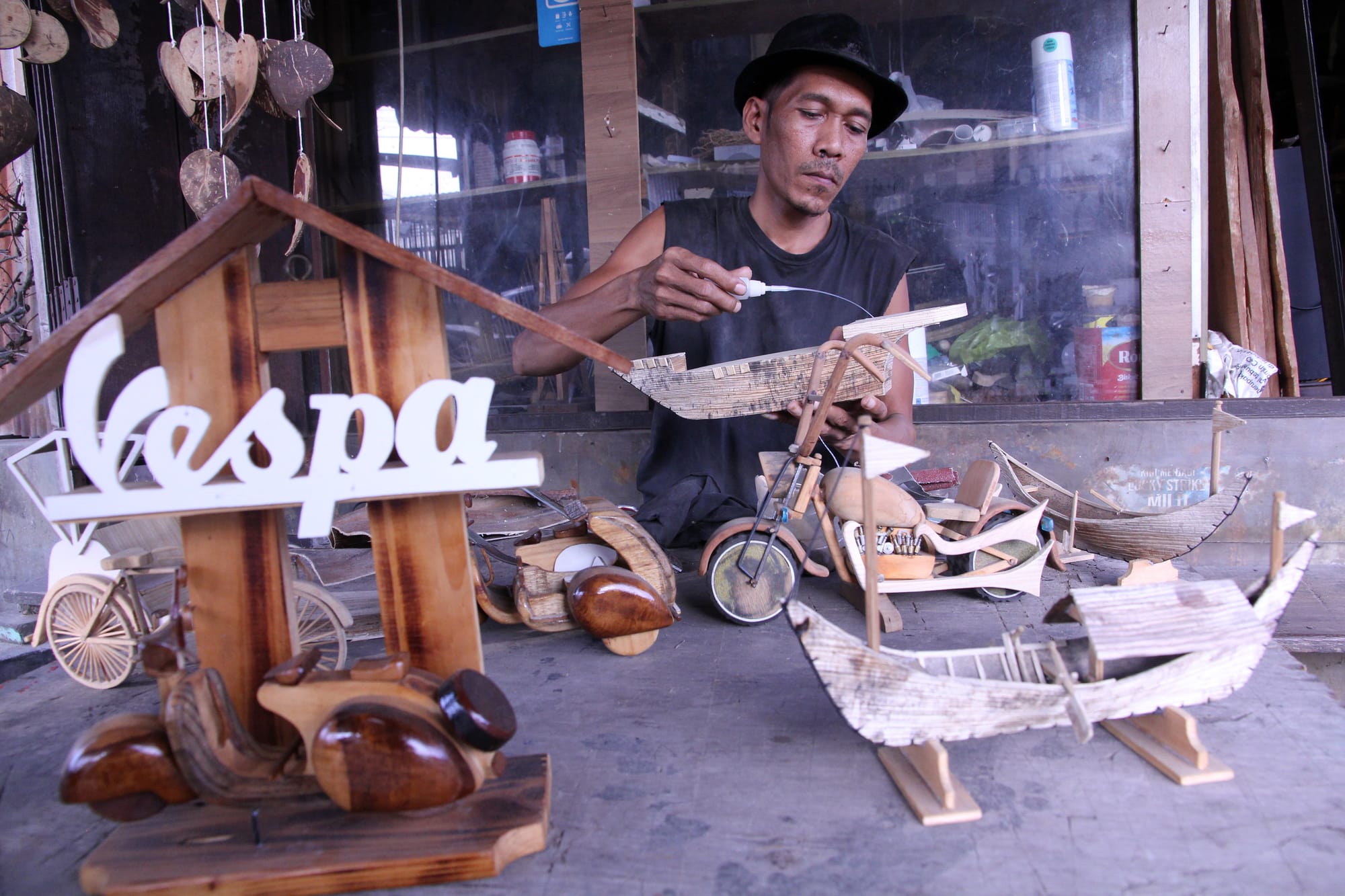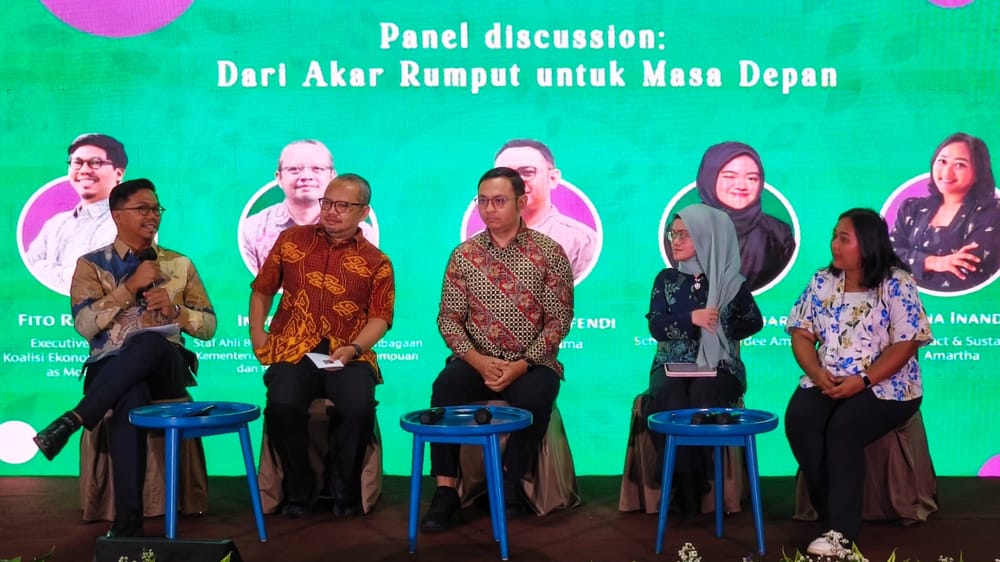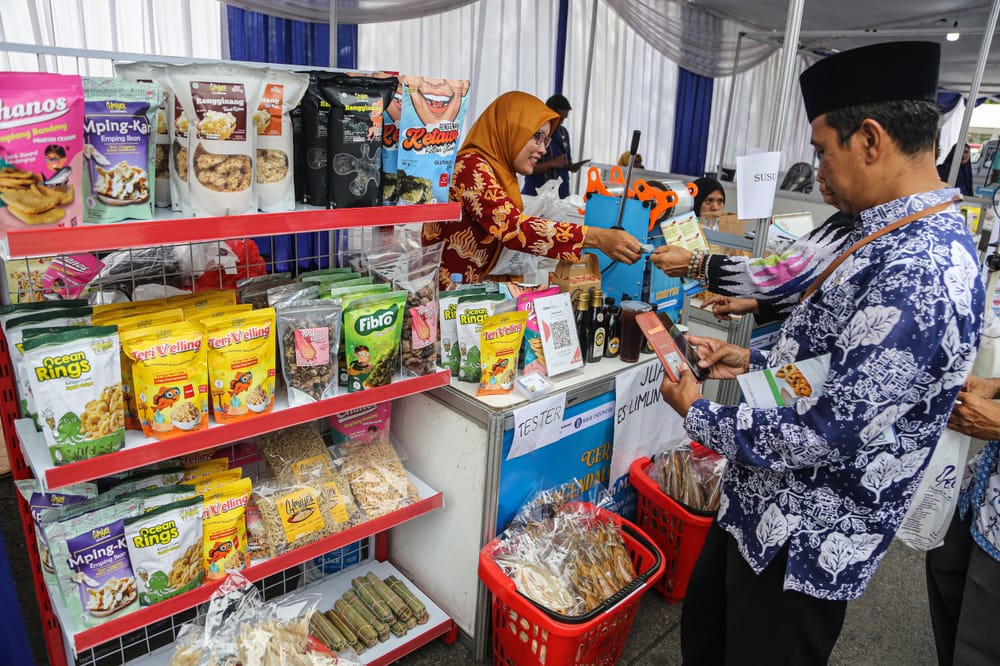The issuance of the Financial Services Authority (OJK) regulation regarding ease of access to financing for micro, small, and medium enterprises (UMKM) is welcome news that has been long awaited. In response to the new regulation, business actors and financing institutions are preparing themselves so that ease of access to financing can truly have an impact on improving their businesses.
As a follow-up to the monthly board of commissioners meeting (RDKB) in August 2025, OJK announced the issuance of OJK Regulation (POJK) Number 19 of 2025 concerning Ease of Access to Financing for Micro, Small, and Medium Enterprises on Monday (15/9/2025).
The regulation aims to encourage banks and non-bank financial institutions (LKNB) to provide easier, faster, cheaper, and more inclusive access to UMKM credit, while still prioritizing the principle of prudence. Through this regulation, OJK hopes that banks and LKNBs can be more innovative in offering financial products according to the characteristics and business needs of UMKM.
"Starting from micro and ultra-micro businesses that need fast and easy access, to small and medium enterprises that require more complex and diverse services," said Chief Executive Supervisor of Banking OJK Dian Ediana Rae regarding the target of this new regulation in a written statement received by SUAR, Tuesday (16/9/2025).
According to OJK records, credit growth up to July 2025 grew 7.03% year on year to Rp 8,043.2 trillion. In the debtor classification, corporate credit experienced a growth of 9.59%, while UMKM credit grew 1.82%. Through this regulation, that growth is expected to increase with the opening of greater access to financing.
There are seven types of conveniences that OJK is promoting in this regulation. First, simplification of requirements and ease of assessing UMKM feasibility. Second, special financing schemes according to business characteristics, including acceptance of collateral in the form of intellectual property. Third, the use of alternative credit ratings to speed up the business process.
Fourth, the determination of reasonable financing costs for UMKM. Fifth, the use of information technology to strengthen the digital ecosystem, financial literacy, and consumer protection for UMKM. Sixth, reaffirmation of the provisions for writing off bad debts in UMKM financing. Seventh, incentives for banks and LKNBs that actively provide ease of access to financing.
"In line with the government's Asta Cita, OJK supports programs to expand financial access, encourage digital-based financing innovation, and healthy governance so that UMKM are more competitive and contribute significantly to equitable economic growth," said Dian.
More than just credit
The financing sector responded positively to the issuance of this new regulation. Vice President for Public Relations of Amartha Mikro Fintek, Harumi Supit, stated that as a peer-to-peer lending based financing company, her party will follow up on the POJK by maximizing existing services, while maintaining the criteria for profiling prospective clients in a more measurable manner.
Harumi explained that during 15 years of operation, Amartha found the reality that each region has different characteristics, so our analysis of prospective debtors will always be adjusted to the local culture, character, and behavior of the community.
"The first factor that we ensure is that the financing must be productive. Then, we will monitor the surrounding environment, what the business is like, the capacity, and the character of prospective clients according to the surrounding residents. This assessment becomes a qualitative factor that also influences approval of financing," Harumi explained to SUAR, Tuesday (16/9).
Most of the financing that Amartha provides is in the form of initial capital financing assistance with amounts starting from Rp 5,000,000. However, this capital is not always preliminary, but also additional for small capital that has been previously owned. Harumi gave the example of a prospective client who started a lemonade business, but due to financial difficulties, she even sold her stove.
"When that client applies for financing to Amartha, the capital we provide can be calculated as expansion capital because the business is already running, but it is also considered initial capital because the client has not previously applied for capital. The position of the capital we provide is a combination of initial capital and expansion capital," she said.
To complement credit facilities for ultra-micro entrepreneurs, Amartha currently offers micro-investment facilities with values starting from Rp 10,000. The aim is to build the habit of UMKM players setting aside existing income for educational or family needs.
In addition, Amartha also presents digital payment services that facilitate transactions and equip UMKM players with digital literacy so that they are able to reach a wider market and can transact outside the community around them.
"Through this provision, we hope to provide more than just financing, so that UMKM players can also improve their welfare in the long term," concluded Harumi.
On a separate occasion, BRI's Corporate Secretary Dhanny said that his party is focused and consistent on the UMKM customer financing business. This year, his party is targeting UMKM credit of 85% of the total credit distribution.
In addition to providing credit, the company consistently supports UMKM that are able to present sustainability solutions through various coaching programs.
“Through various empowerment programs, we want to create more UMKM entrepreneurs who are not only business-oriented, but also bring positive impacts to society and the environment,” said Dhanny.
Encourage demand
An important aspect that should not be forgotten in providing financing facilities for UMKM is encouraging demand in the real sector. Senior Economist at the Institute for Development of Economics and Finance (Indef), Aviliani, assessed that so far, the consideration for banks to channel credit to UMKM is a clear market or one that is already bound by a long-term business contract.
"The problem is that UMKM often do not have collateral. Even if the collateral is not taken into account, at least they have an SPK (work order). Now, they often don't have an SPK either. As a result, UMKM have so far only sold by considering offers, even though the demand side is also important," said Aviliani when contacted by SUAR, Tuesday (16/9).
Encouraging demand in the real sector can be done in several ways. For example, UMKM in tourism areas will definitely submit credit requests if they are not affected by government spending efficiency, or when they become partners of large companies in the value-added supply chain.
Aviliani reminded that if the business scale of UMKM stagnates, they do not need loans. They will only apply if there is additional demand or when they are invited by the government to become suppliers of government needs through the Government Goods and Services Procurement Policy Institute (LKPP).
"Now, because our UMKM are not moving up a class, the financing sector is worried that if their business does not develop while their credit continues to increase, the credit could become bad and instead be used for consumptive needs and cannot be repaid," he emphasized.
Therefore, not only is it important to pressure banks to distribute loans, but also to encourage demand for UMKM to ensure that the injection of funds and the reduction of credit interest rates to banks can be optimal, especially since UMKM are currently growing quite rapidly with micro and ultra-micro scales.
"The government's job is to involve UMKM in government spending. If they don't get demand, it's impossible for banks to offer credit. This new OJK regulation should also understand the risk appetite that banks have in running their respective businesses," he said.






